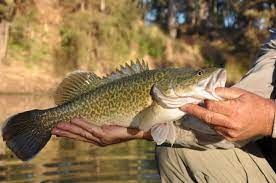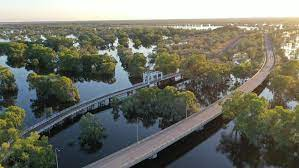Release carp herpes virus now says leading fish ecologist
Luke Williams
10 December 2023, 2:40 AM

A one of Australia’s most-respected river ecologists has called for Governments to immediately release the carp herpes virus.
Carp are an abundant invasive fish species that has been contributing to environmental degradation across the Murray-Darling Basin since the 1960s.
Carp now account for up to 90% of fish biomass in some areas of the Basin and have contributed to pushing native species like the murray cod to the brink.
Dr Martin Mallen-Cooper, one of Australia’s most-respected river ecologists in the latest episode of OzCast, the official podcast of OzFish Unlimited has called on the Australian Government to make a bold move.
Following decades of studying Australia’s freshwater ecosystems, Dr Mallen-Cooper believes the science and research is strong enough to confidently release the virus.
Martin believes that a release will temporarily reduce carp numbers and provide a critical window for native fish to establish a more substantial presence.

Image: OzFish unlimited
In October, Federal and state agricultural ministers have agreed to continue researching a herpes virus for potential release into Australian waterways overrun with carp.
The decision comes almost a year after the National Carp Control Plan – the largest feasibility study of a biological control agent in Australia – was made public.
State and federal agricultural ministers and the Australian Pesticides and Veterinary Medicines Authority said they would need to assess the findings before making a decision about approving the release of the virus.
But many experts say enough research has been done and the time is now.
Carp numbers in the Murray Darling have been increasing despite various methods to reduce them.
“This is a naturally occurring virus in carp populations overseas and has a long history, so it's not a recent mutation. Overseas it only occurs in carp species and research in Australia shows the virus is not a concern for natives,” stated Dr Martin.
He advocates for a nationwide management scheme due to the Murray-Darling Basin spanning multiple states, underscoring the need for a unified approach to address this challenge.

Image: OzFish Unlimited.
Dr Martin says the effect of carp on native fish was not just that they were taking over their territory but their feeding habits impact water quality.
He says the virus would effectively ‘knock down’ carp numbers for a short period, which would allow native fish numbers to survive. After this period, the carp numbers would bounce back, with native fish having a stronger foothold in the environment allowing them to compete with the carp.
Martin believes Australia would have a 3 to 5-year window to act on a number of issues to see this virus work effectively.
When asked whether a virus like this should be a concern for native species in the river, like Murray Cod and Golden Perch, Martin explained the virus is already naturally occurring in carp around the world and only impacts carp.
His calls for immediate releases comes at the same time a new partnership between the NSW Government, the aquaculture industry, and the recreational fishing sector is trialling a new way to fast-track the recovery of native fish populations has been announced.
NSW Department of Primary Industries (DPI) Deputy Director General Fisheries Sean Sloan said that NSW DPI has teamed up with Aquna Murray Cod to trial the stocking of advanced-size native fish in the Edward-Wakool and Darling-Baaka rivers.
“Native fish species like Murray Cod have been severely impacted following drought, floods and fish kills and we need to look at new ways to help populations recover and grow more rapidly,” Mr Sloan said.

Image: VisitNSW
A similar number of tagged fish, including 50 surgically implanted with acoustic tags, have recently been released into the Darling-Barka between Bourke and Louth.
The acoustic tags will allow initial monitoring while an existing receiver network will detect broader scale movements of stocked fish up and down the river.
Dr Martin said that if the herpes virus is released the impact on species like the cod needs to be considered.
"Just as we experienced with the Menindee fish kills in 2018 and 2023, dead fish raise community concerns around water quality, drinking suitability and aesthetics of our rivers and towns," he said. "Dealing with the dead fish is an important cog in deciding whether the virus is released – but overall the science looks positive."



